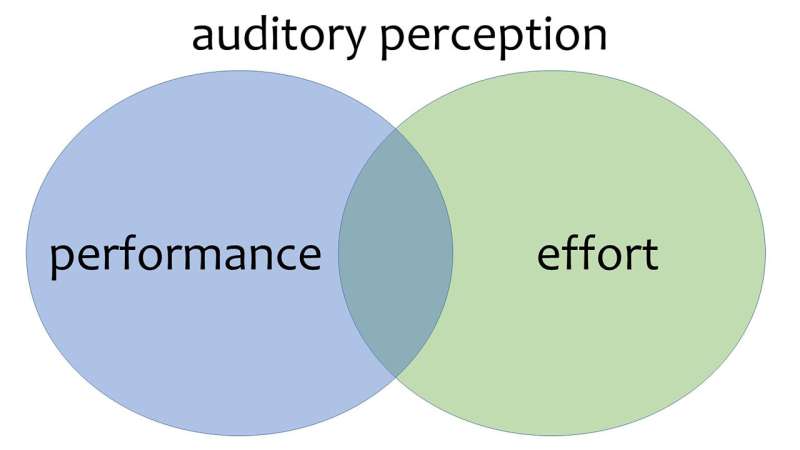Listening can be exhausting for older cochlear implant users

Degraded acoustic signals can make hearing difficult for anyone, but differences in cognitive abilities, age-related changes, and the use of cochlear implants may exacerbate the problem. If it is more challenging to hear, it is also exhausting to communicate.
In her presentation, “Aging effects on listening effort in cochlear-implant users,” Kristina DeRoy Milvae will discuss the results of two experiments that examined impacts on listening effort. The session will take place May 24 at 12:50 p.m. Eastern U.S. at the 182nd Meeting of the Acoustical Society of America at the Sheraton Denver Downtown Hotel.
The first experiment measured how changes in acoustic signal degradation affected listening effort in younger and older adults with normal hearing. Pupil dilation was used as a proxy for listening effort. As people age, highly degraded signals can result in listeners needing to exert even more effort.
In the second experiment, Milvae and her team tested how individual differences in working memory scores affected listening effort in cochlear implant users. Lower working memory scores did not predict increased listening effort.
“A better understanding of listening effort gives a more holistic picture of how we hear,” said Milvae. “Measures of listening effort can help us to better understand the cochlear implant listening experience and help the scientific community to work toward evidence-based approaches to improve listening effort in populations with hearing loss.”
The team’s results emphasize the importance of developing practices to reduce listening effort. Milvae sees three potential paths forward: technological advances in cochlear implants to improve signal clarity, secondary cochlear implants for some users, and aural rehabilitation measures.
Source: Read Full Article
